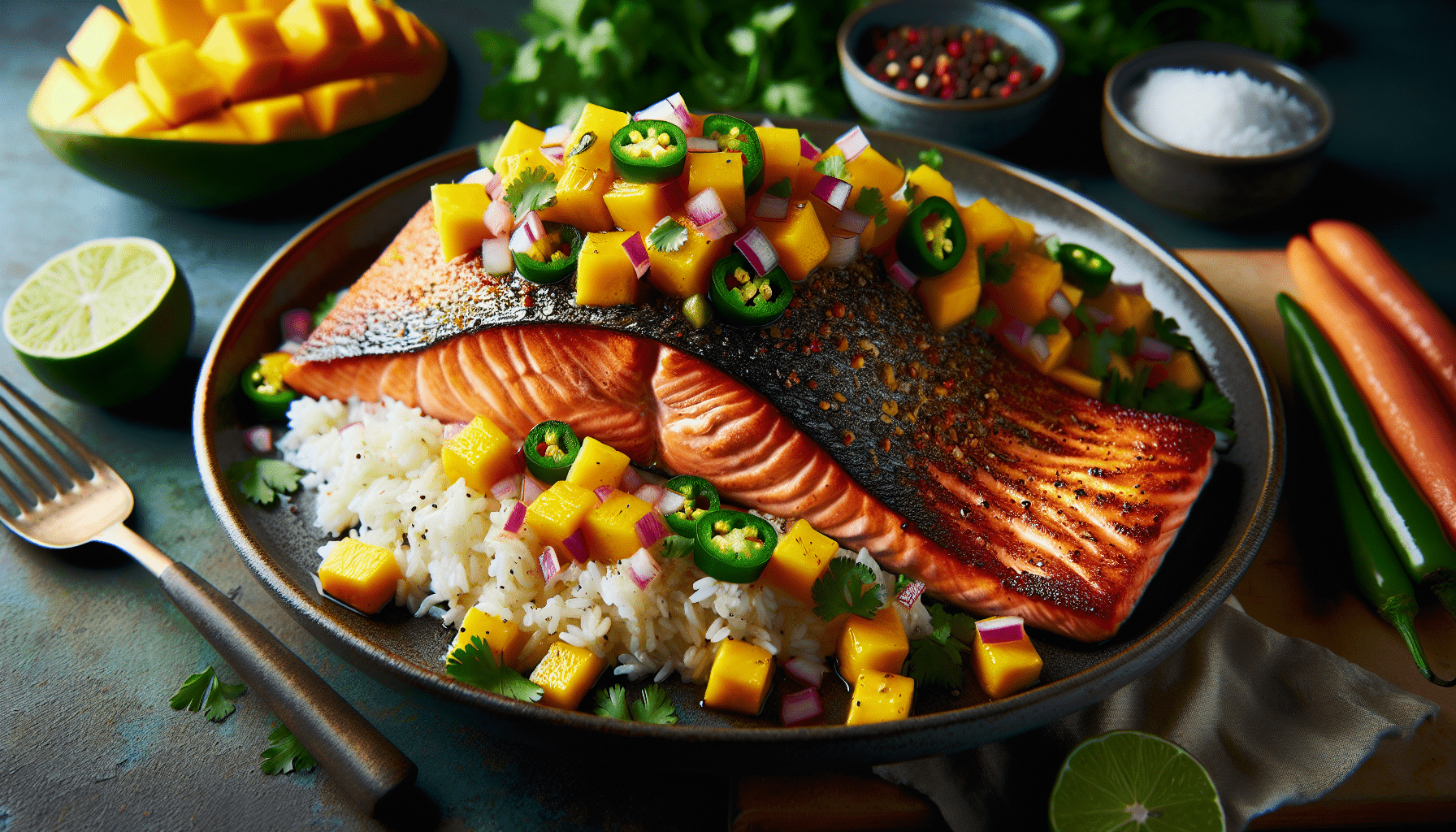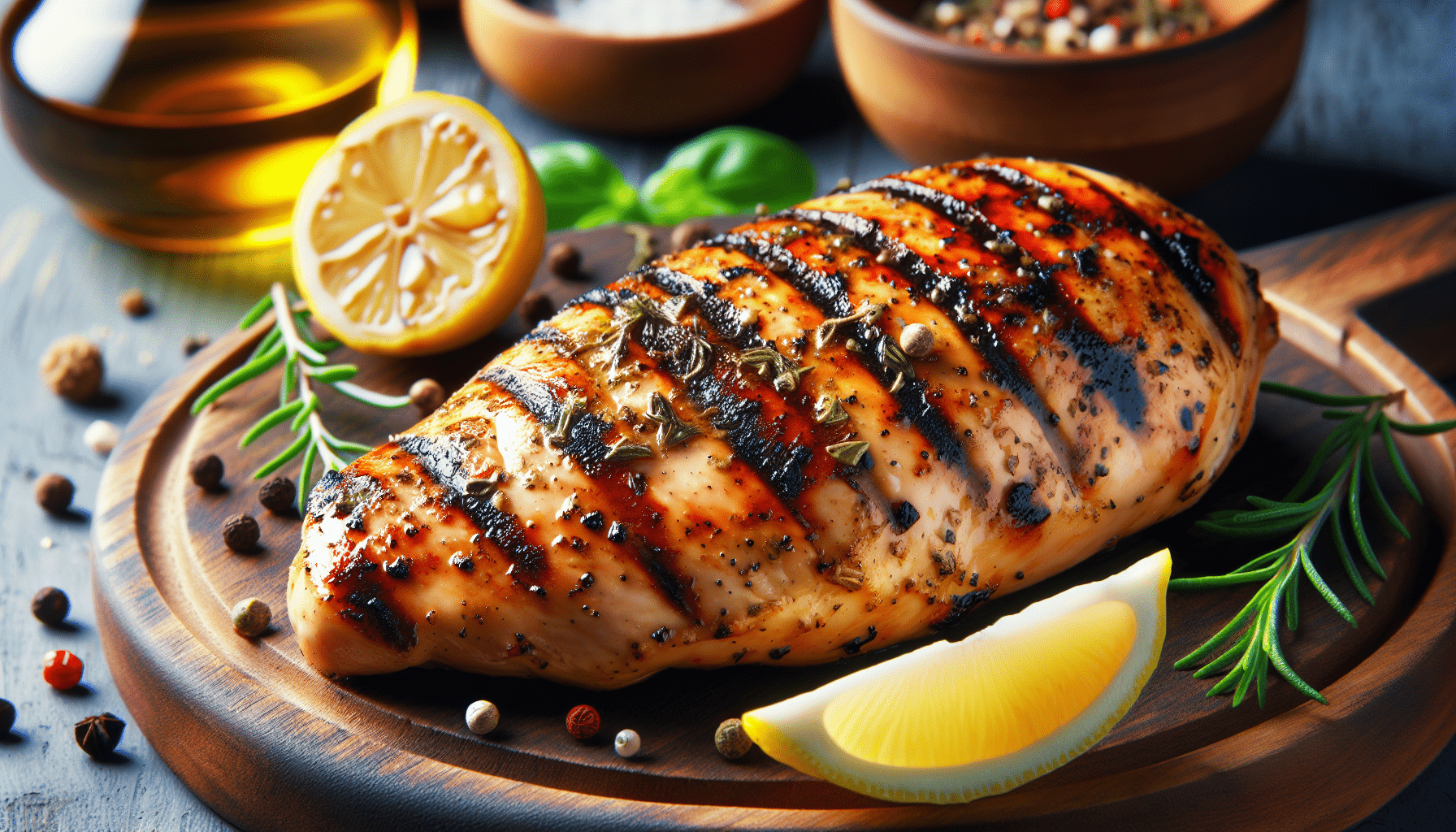If you want to take your meat dishes to the next level, mastering the art of marinating is a must. Marinating not only enhances the flavor of your meat but also tenderizes those tougher cuts that may otherwise be a bit chewy. But before you dive into the marinade, there are a few factors to consider. The type of meat, cut of meat, size of the meat, marinade ingredients, and desired flavor all play a role in determining the perfect marinating time. From beef to pork, chicken to lamb, and even fish, each type of meat requires its own unique marinating time. Additionally, different cuts of meat, such as steak, chops, ribs, and roasts, require different marinating times as well. Remember, thin cuts need less time while thick cuts need more. So, be mindful not to over-marinate, as it can negatively affect the texture, taste, and even the safety of your food. To ensure a successful marinating experience, follow these tips: use a non-reactive container, properly coat the meat, refrigerate while marinating, allow time for resting, and discard the used marinade. And if you’re feeling adventurous, there are alternative marinating techniques to explore, such as injection, dry rubs, and brining. With these skills in your culinary arsenal, you’ll be able to transform any meat dish into a flavorful and tender masterpiece.
Factors to Consider when Marinating
Marinating meat is a great way to enhance its flavor and tenderize tougher cuts. However, there are several factors to consider before you start marinating to ensure the best results. These factors include the type of meat, the cut of meat, the size of meat, the marinade ingredients, and the desired flavor.
Type of meat
The first factor to consider when marinating is the type of meat you will be using. Different types of meat have different textures and flavors, which can affect the marinating process. For example, beef is known for its rich, savory flavor, while pork has a slightly sweeter taste. Chicken, on the other hand, has a milder flavor that can easily absorb the flavors of the marinade.
Cut of meat
The next factor to consider is the cut of meat. The cut of meat refers to how the meat has been sliced or butchered. Each cut of meat has its own unique characteristics, which can impact the marinating process. For example, a steak cut from the tenderloin will be more tender and require less marinating time compared to a tougher cut like ribs.
Size of meat
The size of the meat is another important factor to consider when marinating. The size of the meat can affect the absorption of the marinade and the cooking time. Thin cuts of meat, such as chicken breasts or pork chops, will require less time to marinate compared to thick cuts like roasts. It’s important to take the size of the meat into account when planning your marinating time.
Marinade ingredients
Marinade ingredients play a crucial role in determining the flavor of the final dish. You can customize your marinade by choosing ingredients that will complement the type of meat and your desired flavor profile. Common marinade ingredients include soy sauce, citrus juices, herbs, spices, and various oils. Experimenting with different combinations of ingredients can help you create a marinade that suits your taste preferences.
Desired flavor
Lastly, consider the flavor you want to achieve when marinating your meat. Whether you prefer a tangy, spicy, or sweet flavor, it’s important to plan your marinade accordingly. The desired flavor will determine the type of marinade ingredients you choose and the length of marinating time needed. Additionally, consider how the flavor will complement the type of meat you are marinating.
Marinating Times for Different Types of Meat
Marinating times can vary depending on the type of meat you are working with. Here are some general guidelines for marinating different types of meat:
Beef
Beef can benefit from marinating to enhance its flavor and tenderness. For thin cuts of beef, such as steaks, marinating for 30 minutes to 1 hour is usually sufficient. Thicker cuts, such as roasts, can benefit from marinating for 4 to 24 hours to allow the flavors to penetrate the meat.
Pork
Pork is a versatile meat that can be marinated in a variety of flavors. Thin cuts of pork, like chops, can be marinated for 30 minutes to 2 hours. Thicker cuts, such as pork roasts, can benefit from marinating for 4 to 24 hours.
Chicken
Chicken is a popular meat choice for marinating. Thin cuts, such as boneless chicken breasts, can be marinated for 30 minutes to 2 hours. For whole chickens or drumsticks, marinating for 2 to 24 hours can help infuse the flavors into the meat.
Lamb
Lamb has a distinct flavor that can be enhanced through marinating. Thin cuts of lamb, like chops, can be marinated for 30 minutes to 2 hours. Thicker cuts, such as leg of lamb, can benefit from marinating for 4 to 24 hours.
Fish
Fish is a delicate meat that requires shorter marinating times to prevent the texture from becoming mushy. Thin fillets of fish can be marinated for 15 to 30 minutes, while thicker fillets or whole fish can be marinated for 30 minutes to 1 hour.

Marinating Times for Different Cuts of Meat
In addition to considering the type of meat, the cut of meat also plays a role in determining the marinating time needed. Here are some general guidelines for marinating different cuts of meat:
Steak
Steaks, such as ribeye or sirloin, are typically more tender and require less marinating time. Marinating steaks for 30 minutes to 1 hour is usually sufficient to enhance the flavor and tenderness.
Chops
Chops, such as pork or lamb chops, can benefit from marinating for 30 minutes to 2 hours. This allows the marinade to penetrate the meat and infuse it with flavor.
Ribs
Ribs, whether beef or pork, are tougher cuts of meat that can benefit from longer marinating times. Marinating ribs for 4 to 24 hours can help tenderize the meat and infuse it with flavor.
Roasts
Roasts, such as beef or pork roasts, have a denser texture and can handle longer marinating times. Marinating roasts for 4 to 24 hours allows the flavors to penetrate the meat and enhance its tenderness.
Influence of Meat Size on Marinating Times
The size of the meat is an important factor to consider when determining marinating times. The thickness of the meat can affect how quickly it absorbs the marinade and the cooking time. Here are some guidelines for marinating different sizes of meat:
Thin cuts
Thin cuts of meat, such as chicken breasts or pork chops, require less marinating time. Marinating thin cuts for 30 minutes to 2 hours is usually sufficient to infuse them with flavor.
Thick cuts
Thick cuts of meat, like roasts or whole chickens, require longer marinating times to ensure the flavors penetrate the meat. Marinating thick cuts for 4 to 24 hours helps tenderize the meat and enhance its flavor.
Negative Effects of Over-Marinating
While marinating can enhance the flavor and tenderness of meat, over-marinating can have negative effects on the final dish. It’s important to be mindful of the marinating time to avoid these potential issues:
Texture
Over-marinating can result in a mushy or disintegrated texture in the meat. The acids in the marinade can break down the proteins too much, leading to an unpleasant texture. It’s important to follow the recommended marinating times to avoid this.
Taste
Over-marinating can also result in an overpowering or overly acidic taste. The flavors of the marinade can become too intense and overpower the natural taste of the meat. To ensure a balanced flavor, it’s important to stick to the recommended marinating times.
Food safety
Over-marinating can potentially pose a food safety risk. Longer marinating times can allow bacteria to multiply if the meat is not properly stored or refrigerated. To ensure food safety, it’s important to follow proper storage and marinating guidelines.
Tips for Effective Marinating
To achieve the best results when marinating meat, consider these tips:
Use a non-reactive container
When marinating, it’s best to use a non-reactive container, such as glass or stainless steel. Avoid using aluminum or copper containers, as they can react with the acidic components of the marinade and affect the flavor of the meat.
Properly coat the meat
Ensure that the meat is properly coated with the marinade. This can be done by using a brush or your hands to evenly distribute the marinade over the meat. This ensures that all parts of the meat are exposed to the flavors and results in a more consistent flavor profile.
Refrigerate while marinating
It’s important to refrigerate the meat while it is marinating. This helps prevent bacterial growth and ensures food safety. Place the marinating meat in a covered container or sealable plastic bag and keep it in the refrigerator until you are ready to cook.
Allow time for resting
After marinating, allow the meat to rest for a few minutes before cooking. This allows the flavors to further penetrate the meat and ensures more even cooking. Letting the meat rest at room temperature for about 15 to 30 minutes before cooking is usually sufficient.
Discard used marinade
To prevent cross-contamination, discard the marinade that has been in contact with raw meat. It’s important not to reuse the marinade for basting or as a sauce unless it has been boiled first to kill any bacteria present. Using fresh marinade for these purposes ensures food safety.
Alternative Marinating Techniques
In addition to traditional marinating, there are alternative techniques you can try to add flavor to your meat:
Injection
Injection involves using a marinade syringe to inject the flavors directly into the meat. This technique is commonly used for larger cuts of meat, as it allows the marinade to penetrate deep into the meat for maximum flavor.
Dry rubs
Dry rubs involve coating the meat with a combination of herbs, spices, and other dry ingredients. This technique is particularly popular for grilling or smoking meats. The dry rub forms a flavorful crust on the meat and enhances its taste without the need for liquid marinade.
Brining
Brining is a technique that involves soaking the meat in a saltwater solution to enhance its flavor and moisture content. This technique is commonly used for poultry, particularly in preparing juicy and flavorful Thanksgiving turkeys. Brining can be done for a few hours to overnight, depending on the size of the meat.
By considering the type of meat, the cut of meat, the size of meat, the marinade ingredients, and the desired flavor, you can achieve deliciously marinated meat. Remember to follow the recommended marinating times, be mindful of over-marinating, and try out alternative marinating techniques for a variety of flavorful dishes. Happy marinating!




